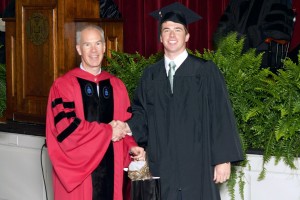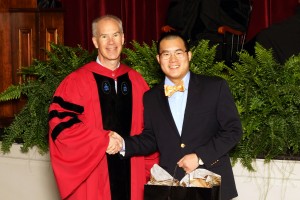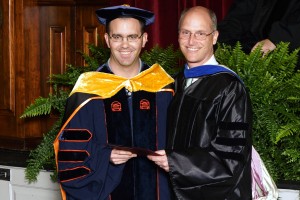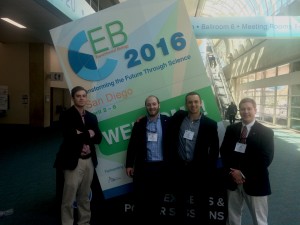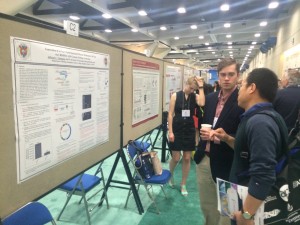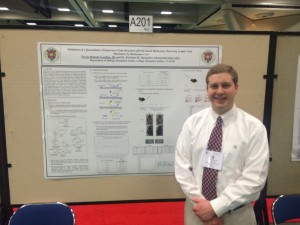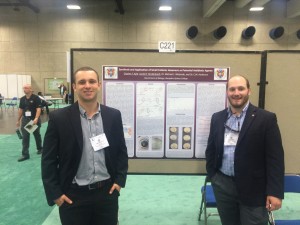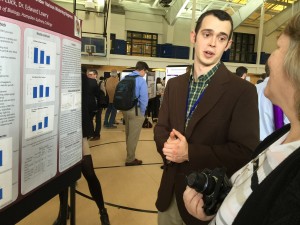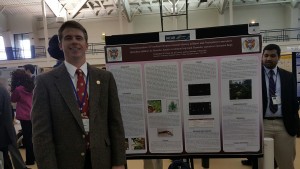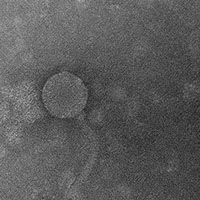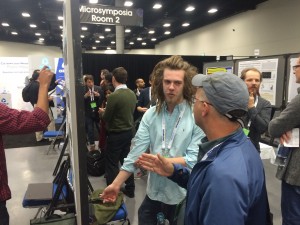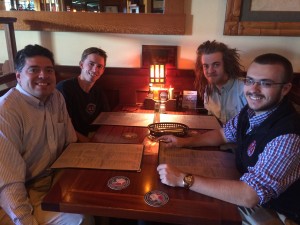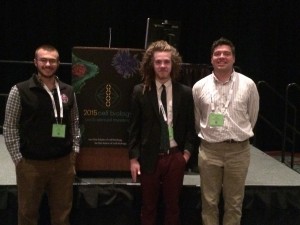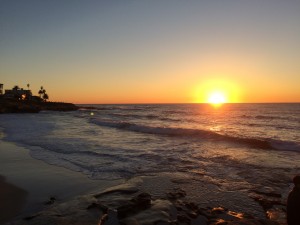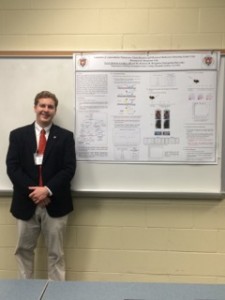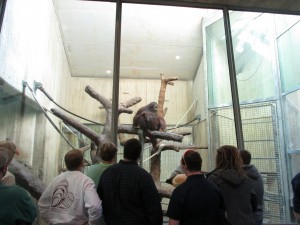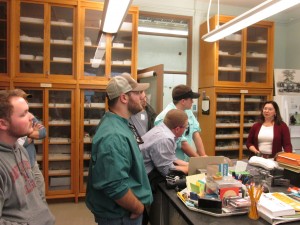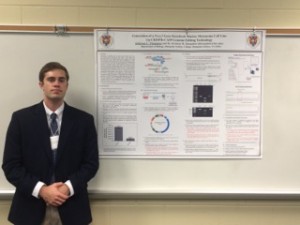The biology department was well represented at the College’s 2016 Final Convocation ceremony, held each April to honor the achievements of members of the Hampden-Sydney community over the past year. The Biology Department gives two awards at this event. The first, the R.T. Hewitt Biology Award, is given to the graduating senior who has distinguished himself in his work in the classroom and the laboratory over his 4 years at the College. This year’s recipient, Christopher Hawk ’16, has worked extensively with Professors Ed Lowry and Mike Wolyniak over the past two years on ecological and molecular biological research studying the microbiome of hops. His work was instrumental in the development in a new research-based introductory laboratory course at Hampden-Sydney. Chris plans to begin work next year in the field of environmental consulting.
Next, the department presented the Overcash Award, a prize awarded to the top junior in the department who is planning a career in the health sciences. This year’s recipient, James Lau ’17, was recently named the third Goldwater Scholar in Hampden-Sydney history and will undertake research this summer with Professor Kristian Hargadon ’01 (the College’s first Goldwater Scholar) and will begin study at Eastern Virginia Medical School in the fall of 2017 as part of the early admission articulation agreement between the two institutions.
Finally, Professor Kristian Hargadon received the John Peter Mettauer Award for Research Excellence in recognition of his extensive and productive research program on the study of melanoma in a mouse model.
Faculty from the Biology Department have won the Mettauer Award 3 of the last 4 years and 4 times in the past 7 years (Dr. Alex Werth-2010, Dr. Mike Wolyniak-2013, Dr. Bill Shear-2015, Dr. Kristian Hargadon-2016).

